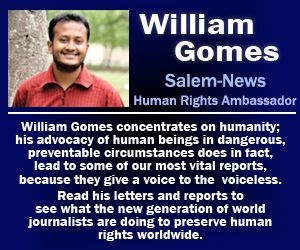But many, closer to home, still find the existing procedure unfriendly
 Postal Ballot: Unlike in the past, more than a thousand or so Bhutanese, living and working in the United States, will take part in the country’s electoral process, starting with sending in votes for the second parliamentary elections next year.
Postal Ballot: Unlike in the past, more than a thousand or so Bhutanese, living and working in the United States, will take part in the country’s electoral process, starting with sending in votes for the second parliamentary elections next year. This is being made possible through the election commission’s decision to extend the postal ballot facility to Bhutanese living in the US.
Chief election commissioner Dasho Kunzang Wangdi said this was the result of the commitment prime minister made during one of his visits as the head of the government.
In September 2010, Prime Minister Jigmi Y Thinley told those living in New York that the government would consider renewing their citizenship identity cards without having to come to Bhutan in person, and also to facilitate postal ballots, among others.
“We thought we could make an accommodation to that, since there was a sizeable group,” Dasho Kunzang Wangdi said.
He said that came under the election Act’s provision, which says the commission could consider case by case on who could vote through post.
“Just now it’s those in the United States but, if Bhutanese from other places apply, giving valid reasons, we’ll extend the service, based on the application,” he said.
Welcoming the news, Aum Tshering from Wangduephodrang, who has lived in New York for the last seven years, through an email interview, said they were well updated with political developments in the country through relatives and the media.
“But we could never partake in our country’s democratic process,” she said, adding the least they could do was make their votes count, but that was not obtainable.
According to election rules, only those diplomats and persons working in Bhutanese embassies abroad, persons residing outside Bhutan on special government duty, their dependents and spouses, armed forces, civil servants and students and trainees were entitled to vote through postal ballots.
During the local government elections, however, postal ballots were also made available to spouses and direct dependents of civil servants.
“After the first parliamentary elections, there were issues where civil servants, while they could vote by post, had to travel to the villages to drop their wives and children,” Dasho Kunzang Wangdi said. “Through the Parliament, we made the decision.”
Meanwhile, many private individuals said they should be entitled to the postal ballot facility, since it required closing their businesses for days.
“Unlike civil servants, for us, every hour makes a difference to our income,” a stationery shop owner in Thimphu Pema Tashi said, adding, during the last parliamentary election, he closed his shop for more than a week.
A grocery shop owner at the capital’s vegetable market, Lhundrup Tshering said, making postal ballot available to everyone would encourage more people to vote.
“Voting is not compulsory, so even such facilities should be kept optional to all,” he said.
But those, who could avail postal ballot, said the procedures involved were least friendly.
A voter was first required to register with the commission, then apply to the returning officer, and then cast a vote by post. In the last National Council election, more than 12,000 votes were rejected, owing to some error in the detail voters provided.
Election commission officials, however, argued that was the simplest process they could offer.
“We can’t make it too simple that in itself becomes difficult,” Dasho Kunzang Wangdi said, adding at every stage, secrecy was involved and they had to ensure it.
He said, wherever possible, they simplified it, like doing away with the requirement of an individual from same constituency having to be witness.
“Any Bhutanese can be a witness now,” he said.
He said, while the commission encouraged people to go and vote in person, and made postal ballots available to only those, who required to be on election duty, among others, postal ballot was not the finest of the practice.
“Big election systems hardly take interest in postal ballots, since it often becomes an issue of questioning the election itself,” he said, adding a little investment, to ensure a competent representative was elected that would make a huge impact, was the least one could do.
By Kesang Dema(Kuenselonline.com)
 Pabi Rizal grew up in a refugee camp in Nepal, arriving in Canada three years ago at age 18. She is deaf and has learned English and western-style sign language together in her new country. She has two jobs and does volunteer work. The Citizen asked her about adjusting to life here; she took the questions through video conference with a signing interpreter and replied in writing:
Pabi Rizal grew up in a refugee camp in Nepal, arriving in Canada three years ago at age 18. She is deaf and has learned English and western-style sign language together in her new country. She has two jobs and does volunteer work. The Citizen asked her about adjusting to life here; she took the questions through video conference with a signing interpreter and replied in writing:







 Dan Bahdur Gurung, a refugee from Bhutan, is one of hundreds from that country making Lethbridge home. (CBC)
Dan Bahdur Gurung, a refugee from Bhutan, is one of hundreds from that country making Lethbridge home. (CBC) Service was slow at the Charlottetown office even with three staff, says Madan Kumar Giri. (CBC)
Service was slow at the Charlottetown office even with three staff, says Madan Kumar Giri. (CBC)






